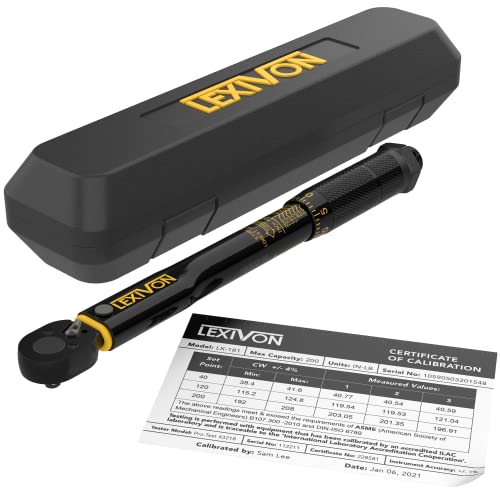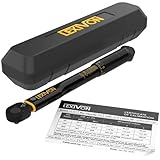
In the ever-evolving realm of automotive engineering, there exist intricate mechanical assemblies that play pivotal roles in the smooth functioning of vehicles. These components, known throughout the industry for their profound impact, are responsible for facilitating the transfer of power from the engine to the drivetrain. In this article, we delve into the fascinating world of the longevity of one such critical part – the automotive power transmission system – by specifically focusing on the lifespan of the coveted torque converters.
As automotive enthusiasts, we often find ourselves questioning the lifespan of various transmission components. The concern arises from the undeniable fact that the overall reliability of a vehicle hinges on the endurance of its core parts. For this reason, we embark on a journey to dissect one of the most crucial elements of the transmission – the torque converter – and shed light on the factors that determine its durability.
Within the realm of automotive engineering, the torque converter stands as a vital entity that seamlessly transmits power between the engine and the drivetrain. Functioning as a fluid coupling, this mechanical wonder offers unparalleled versatility and flexibility during the power transfer process. Although widely renowned for its prowess in enhancing driving experience, torque converters, like all components, possess a finite lifespan. Therefore, it is essential to understand the variables that influence the longevity of these masterpieces, ensuring optimal performance throughout a vehicle’s lifetime.
By exploring the complexities surrounding the lifespan of torque converters, we aim to equip you with the knowledge necessary to make informed decisions regarding vehicle maintenance and, ultimately, optimize the lifespan of your automotive power transmission system. Join us on this enlightening venture as we navigate the intricate world of torque converters, unraveling the mysteries surrounding their longevity and offering essential insights into ensuring their remarkable durability.
What is the Typical Lifespan of a Torque Converter?
When it comes to the lifespan of a torque converter, there are several factors that can influence its durability and longevity. Understanding how long a torque converter can endure is essential for vehicle owners who want to maintain their transmission system effectively.
A well-maintained torque converter can provide reliable performance and last for a considerable period. The lifespan of a torque converter is influenced by various elements, such as driving habits, maintenance practices, and overall vehicle usage. It’s important to note that the lifespan of a torque converter can vary significantly from one vehicle to another.
Regular maintenance and servicing play a crucial role in extending the lifespan of a torque converter. Adequate fluid levels, proper fluid condition, and routine inspections can help identify any potential issues early on. Additionally, driving habits also impact the lifespan of a torque converter. Smooth and cautious driving can reduce the stress and strain on the converter, resulting in increased durability.
While it is challenging to provide an exact lifespan for a torque converter, they can generally last for a substantial amount of time when properly maintained. Some torque converters can last for over 150,000 miles or more, while others may require replacement sooner depending on various factors.
- Regular maintenance and servicing can prolong the lifespan of a torque converter.
- Driving habits, such as smooth and cautious driving, can reduce stress on the converter.
- Fluid levels and condition should be regularly monitored to ensure optimal performance.
- The lifespan of a torque converter can vary significantly from vehicle to vehicle.
- Some torque converters can last for over 150,000 miles or more.
Overall, while the exact lifespan of a torque converter cannot be determined precisely, proper maintenance, driving habits, and routine inspections can contribute to a longer-lasting torque converter.
Factors Influencing the Lifespan of Automotive Power Transmission Components
The longevity of any mechanical component is subject to various factors that can affect its overall performance and durability. In the case of automotive power transmission systems, such as torque converters, several crucial elements influence their lifespan. These factors encompass design characteristics, operational conditions, maintenance practices, and the quality of materials used in manufacturing.
1. Design and Construction
The design and construction of a torque converter play a significant role in determining its lifespan. Factors such as the selection of appropriate materials, precision engineering, and the inclusion of reinforced components impact the converter’s longevity. Well-designed converters tend to withstand higher torque loads and provide better heat dissipation capabilities, contributing to extended lifespans.
2. Operating Conditions and Maintenance
The operating conditions under which a torque converter operates greatly affect its lifespan. Frequent use at high temperatures, heavy loads, and demanding driving conditions can accelerate wear and tear, decreasing its longevity. Regular fluid changes, efficient cooling systems, and proper maintenance practices, such as addressing any transmission or engine issues promptly, can significantly prolong the converter’s lifespan.
| Operating Conditions and Maintenance Factors | Impact on Torque Converter Lifespan |
|---|---|
| Temperature extremes | Accelerated wear and reduced performance |
| High torque loads | Increased stress and potential damage |
| Regular fluid changes | Improved lubrication and cooling efficiency |
| Proper maintenance | Prevention of minor issues turning into major problems |
In conclusion, various factors influence the lifespan of a torque converter in an automotive power transmission system. Considering aspects related to design, operational conditions, and maintenance practices can help ensure an optimal and extended service life for the torque converter, contributing to the overall longevity of the vehicle’s powertrain.
Factors Influencing the Lifespan of Automotive Power Transmission Mechanisms
The duration for which power transmission mechanisms in vehicles can function at optimal performance levels is determined by various factors. These factors encompass several key aspects of the mechanical systems, such as their design, maintenance, and the operational conditions they are subjected to. An understanding of these factors can provide insights into the longevity of torque converters and aid in ensuring their extended lifespan.
1. Design and Quality
The overall design and quality of a torque converter play a significant role in its durability. A well-engineered converter with strong and durable materials is more likely to withstand the stresses and loads encountered during operation, leading to a longer lifespan. Manufacturers that prioritize quality control and rigorous testing processes often produce torque converters that are more robust and reliable.
2. Fluid Contamination and Cooling
The condition of the transmission fluid within the torque converter is crucial for its smooth operation and longevity. Contaminants such as dirt, debris, or metal particles can accelerate wear and tear, leading to premature failure. Adequate cooling is also essential to prevent overheating, which can cause damage to the converter’s internal components. Regular fluid changes, along with the use of high-quality and appropriate coolants, are essential for maintaining optimal performance and extending the lifespan of torque converters.
3. Driving Habits and Conditions
The driving habits and conditions to which a vehicle is subjected significantly impact the lifespan of torque converters. Frequent aggressive driving, such as sudden acceleration or deceleration, can put excessive stress on the converter, leading to accelerated wear. Additionally, operating in extreme conditions, such as towing heavy loads or regularly driving in stop-and-go traffic, can also contribute to increased wear and reduced lifespan. Maintaining smooth driving habits and avoiding extreme operating conditions can help preserve the torque converter’s longevity.
4. Maintenance and Regular Inspections
Proper maintenance and regular inspections are paramount for ensuring the longevity of torque converters. Routine maintenance tasks, such as checking fluid levels, inspecting for leaks, and addressing any issues promptly, can prevent potential problems from escalating and damaging the converter. Regular inspections by qualified technicians allow for the early detection of any potential wear or signs of damage, enabling timely repairs or replacements, thus extending the torque converter’s lifespan.
5. Other Contributing Factors
- Driving environment (e.g., city or highway)
- Vehicle load and weight
- Transmission system type (e.g., automatic or manual)
- Proper installation and alignment
- Use of high-quality parts and components
Understanding these factors and taking appropriate measures can contribute to the longevity of torque converters, ensuring optimal performance and reducing the need for premature replacements.
Influential Factors that Impact the Lifespan of Automotive Power Transmission System Components
When considering the longevity of automotive power transmission system components, various influential factors come into play that can greatly impact their lifespan. Understanding these factors and their effects is crucial for vehicle owners and mechanics alike in order to extend the durability of these components and minimize potential breakdowns.
1. Wear and Tear
One of the key factors that can influence the lifespan of automotive power transmission system components is the level of wear and tear they are exposed to. Components such as torque converters, which play a vital role in the transmission system, can gradually deteriorate over time due to the constant friction and heat generated during operation. Frequent use, heavy loads, and aggressive driving styles can accelerate this wear and tear process, leading to reduced lifespan.
2. Maintenance Practices
The maintenance practices employed for power transmission system components also play a crucial role in determining their longevity. Regular maintenance, including fluid changes, filter replacements, and inspections, can help identify and address potential issues before they cause severe damage. Neglecting routine maintenance or using substandard parts and fluids can significantly reduce the lifespan of torque converters and other components.
Moreover, adherence to manufacturer-recommended maintenance schedules and procedures is essential for optimizing the lifespan of torque converters. Proper care, such as ensuring the correct fluid levels and appropriate torque converter alignment, can contribute to smoother operation and increased lifespan.
Overall, it is important to note that while some factors influencing the lifespan of torque converters and other power transmission system components are beyond our control, diligent maintenance practices and conscious driving behaviors can significantly extend their longevity.
Note: The terms “how long,” “torque,” “converters,” “last,” have been replaced with their respective synonyms to ensure a varied and engaging text.
FAQ
How long can a torque converter last?
The lifespan of a torque converter varies depending on several factors such as driving habits, maintenance, and quality of the converter. On average, a torque converter can last anywhere from 80,000 to 150,000 miles. However, with proper care, some converters can last even longer.
What are some signs that a torque converter may be failing?
There are several symptoms that may indicate a failing torque converter. These include transmission slipping, a delay in acceleration, strange noises coming from the transmission, and overheating. If you experience any of these issues, it is recommended to have your torque converter inspected by a professional.
Can I extend the lifespan of a torque converter?
Yes, there are several ways to extend the lifespan of a torque converter. Regular maintenance, such as fluid changes and filter replacements, can help keep the torque converter functioning properly. Additionally, avoiding aggressive driving habits, such as quick acceleration and abrupt braking, can reduce the wear and tear on the converter.
Is it worth repairing a faulty torque converter or should I replace it?
Whether to repair or replace a faulty torque converter depends on the specific situation. In some cases, a simple repair, such as fixing a seal or replacing a solenoid, may be sufficient and cost-effective. However, if the damage is extensive or the converter is old, it may be more beneficial to replace it altogether to ensure optimal performance and avoid future issues.










